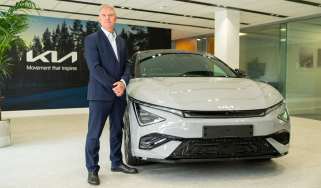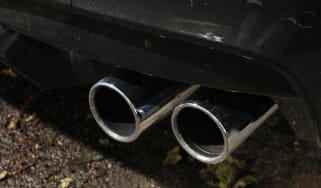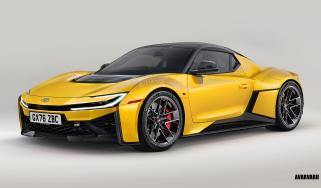ULEZ, electric car road tax and public transport: what motorists can expect under a Labour government
Labour’s manifesto is short on pledges regarding motoring. We explore the policies left-of-centre think-tanks and lobbyists will be pushing for, if the party wins
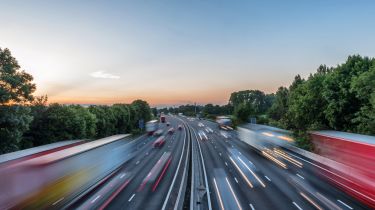
By July 5, the votes will have been cast and counted, with current polling pointing to a sizeable Labour majority in parliament after 14 years of Conservative rule.
But what will a swing to the left mean for Britain’s tens of millions of motorists? Labour’s 2024 manifesto offer to drivers stretches to not much more than filling in a few extra potholes, and a vague promise to look at unfair insurance prices. They’ll also bring the UK petrol and diesel ban forward again to 2030, but there’s nothing on touchy topics such as road pricing, reducing traffic numbers, or fuel duty, all of which have been part of the left’s ‘progressive’ agenda for years.
So, given the general consensus that Labour is on the way to a landslide, should we be more concerned by what the party isn’t telling drivers about the years ahead?
The fact is, while Sir Keir Starmer and his colleagues have not been overtly vocal about their intentions should they make it into Downing Street, the issues above are being widely debated and discussed across the political sphere in general, and the Labour movement in particular.
As journalist Chaminda Jayanetti identified in an article published in September 2023 for CivilServiceWorld.com entitled: “The new wonkocracy: Who are the think tanks shaping Labour policy?”, there’s a growing army of groups and organisations formulating and sharing ideas in preparation for Starmer’s potential coronation.
Independent
One of these groups identified by Jayanetti is the Resolution Foundation, which describes itself as an “independent think tank focused on improving the living standards of those on low-to-middle incomes”.
In June last year, as part of its Economy 2030 Inquiry – a project devised to plot a new economic strategy for Britain – it published “When The Rubber Hits The Road”, a report that looked into how motoring taxation should be overhauled in the transition to net zero.
With the percentage of electric cars on the road on the increase, it says that existing methods of taxation promise to leave an annual black hole of £10billion in the early 2030s that threatens to stretch to £30billion a year within three decades. On top of that, it predicts cheaper EV motoring will see traffic numbers rise by a quarter by 2050.
To address these concerns, When The Rubber Hits The Road came up with an array of policy ideas including a national, per-mile road duty system that it wants to see introduced to EV drivers at 6p per mile from 2027. This, the report argues, should be implemented by a GPS system, building on existing technology. Drivers of petrol and diesel cars would continue to pay fuel duty.
It also believes that local authorities should be empowered to introduce congestion charging, with large towns and cities the focus. Enabled by the national GPS system, this would eliminate the need for costly infrastructure, allowing simple billing. When The Rubber Hits The Road advocates further reforms, with at-purchase VED road tax based on weight – including a per kg charge for all vehicles above a designated limit.
And in a move intended to ensure that running an EV is affordable for low earners who may not have access to home chargers, there’s a call for VAT on public chargers to be reduced from 20 per cent to 5 per cent (as on home units). Costs would be recouped from other motoring taxes, with a higher rate on upfront VED one option.
The report was co-authored by Jonathan Marshall, senior economist at the Resolution Foundation, and is sure to be seen as radical in some circles. Although it has been in the public domain for nearly a year, during which demand for EVs has slowed, Marshall told Auto Express that he believes it remains as relevant as ever.
He said: “Firstly, manufacturers will have to ensure that this mild slowdown does not persist, or they will be fined under the ZEV mandate [whereby they have to make a certain percentage of zero-emissions vehicles each year]. But the key issue here is to ensure that potential buyers are aware that EV driving is artificially cheap at the moment, and that it will have to be taxed in the future – both to avoid a tax black hole, but also to ensure that congestion doesn’t get even worse than it already is, as cheaper per-mile costs will see people opting to drive more The longer it takes for a new pricing system to be discussed and introduced, the worse these problems will be.”
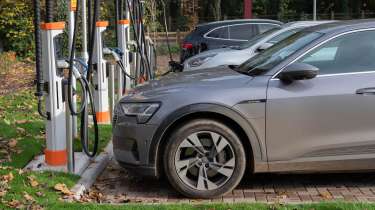
Pressed on whether a potential Labour government is likely to pay heed to any of these recommendations, Marshall was non-committal, simply making the point that something has to be done, regardless of who is in charge. He continued: “The next parliament is one in which these sort of measures will need to be introduced, so pressure will be on whichever party wins the election to do something. People from both parties have voiced doubts over new motoring taxes, but the alternative is a £30billion gap in public finances by 2030, which would mean either higher taxes elsewhere or less public spending.
“Ensuring that the tax system is modernised so that all drivers pay their way, yet do so in a way that does not slow the journey to net zero, will be a critical task for whoever forms the next Government.”
While the Resolution Foundation has some interesting ideas, arguably the most influential think tank at present is Labour Together. Respected website Politico says it is “quietly crucial” to Starmer’s vision. It was formed in 2017 by a group of MPs, including notable names such as Rachel Reeves, Wes Streeting and Lisa Nandy, in a bid to make the party electable again, and claims to offer “bold ideas for Britain” under a Labour government.
Perhaps reflecting the prevalent attitude that motoring is not a decisive factor in this election, Labour Together did not respond to a request from Auto Express to contribute to this article. There have also been no references to any motoring-related issues in any of its recent reports.
However, its recently published Building A New Britain report did contain some intriguing policy suggestions, including the introduction of a British Infrastructure Act where better public transport, particularly in the north, should be a key focus. It claimed: “Given the necessity of creating growth clusters to achieve levelling up, the congestion in major cities and the lack of space to increase road capacity, inter-urban public transport should be a key focus.”
While the implication is this could curb some car use, another influential group, IPPR, is more explicit in its recommendations. Although IPPR says it is an “independent charity working towards a fairer, greener and more prosperous society” – and so cannot be party political – as Chaminda Jayanetti points out, it “has a long-standing relationship with Labour”.
It is much more forthright on car usage, with research fellows Stephen Frost and Dr Maya Singer Hobbs arguing in a 2023 blog that “with the right leadership, the UK can break our dependency on cars and deliver huge benefits for individuals, communities and the environment. There is not a forecast for travel in 2050 that doesn’t see cars remaining as a key part of our lives. But that doesn’t mean we should pretend that ever-increasing levels of car ownership and traffic are desirable for anyone, especially not those on the lowest incomes.”
According to Dr Hobbs, this could be achieved by “making sure people have a choice”. She explained to Auto Express: “It’s about having alternatives – if you want to get a bus, for example, we need to have a system where the bus turns up on time, goes where you want to go and is cheaper, or at the very least cost comparable, with driving.”
In February, IPPR published “Where Are We Going?”, a report that focused on transport priorities for the next government, and it contained some recommendations that would have major implications for motorists.
Acknowledging the environmental benefits of EVs, it advocates the next Government must ensure that EVs do not become the preserve of the wealthy. “Those living on low incomes in rural areas with poor public transport provision should be supported to access EVs through an affordable social leasing scheme,” it says.
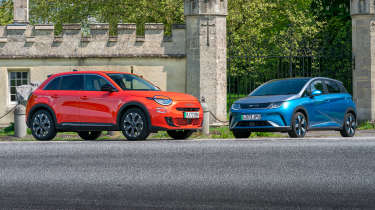
Concern for those on low incomes fuelled its suggestion that the government cracks down on car insurance, in particular “autorenewals, hidden fees and poor value of insurance products”. And it also wants to see the launch
of “an urgent taskforce to address the risk PCPs create to financial stability and make recommendations on how to align car financing with social and environmental goals”.
There’s a call to end the fuel-duty freeze, which, it argues, helps those on higher incomes rather than low wages. Instead, the next government should “establish a cross-party, independent commission on the future of motoring taxation backed by a citizens’ jury”. Its remit would include “identifying how car regulations and taxation should change to address the trend of ever-increasing car sizes”.
When we quizzed Dr Hobbs on what Labour made of IPPR’s suggestions, she admitted: “It’s hard to know – we haven’t heard a lot from Labour about what they’re thinking about drivers. But the previous government, before it was dissolved, wasn’t receptive to the ideas we are discussing.”
Strategy
A fourth think tank that we can expect to have some input into Labour strategy is the Tony Blair Institute (TBI) for Global Change, set up by the former PM. Although, as the name suggests, it works with leaders across the world, it retains a keen focus on Britain, too, with a blog published in the wake of Jeremy Hunt’s Budget in March highly critical of the continued freeze on fuel duty – dismissing it as “unaffordable” and a “pre-election giveaway”, and urging an end to it under the next government.
TBI also appears to be in favour of further taxation elsewhere, too – just like the Resolution Foundation – with senior policy adviser James Browne telling The Telegraph in January that a new system of road pricing that covers electric cars is required to prevent “gridlock Britain”.
Browne was quoted as saying: “This [road tax] needs to happen urgently, before too many people buy electric vehicles on the basis that they will not be taxed, making it impossible to introduce it later.”
While the uncertainty for motorists is understandably frustrating, one key theme that did become clear in researching this piece is that if Labour does take office, many believe it should do so with a mindset reassured by Sadiq Khan’s re-election as London Mayor in early May.
Khan’s commanding victory in the Mayoral election seems to have allayed fears that the capital’s ULEZ (Ultra Low Emission Zone) – perceived by some as being anti-motorist – is as unpopular as was first made out.
This feeling was articulated by Paul McNamee, director of the independent Labour Climate and Environmental Forum, who previously worked on the ULEZ expansion. He posted on X in May: “As the dust settles on the count for London Mayor, much of the political commentary and media coverage we have seen – that British people want to ditch climate and air-quality ambition – has been proven totally out of touch by an 11 per cent majority for Sadiq Khan.” This is a sentiment that is being repeated elsewhere across the left. If Labour does indeed take power and is suitably emboldened – seeing it as a green light for radical policies – car drivers should buckle up for a new era on the roads of Britain.
Get more car news, video, pictures and exclusive content on our Facebook page...




